Obama Is Right on the Debt Ceiling
According to the Obama administration, there is nothing the president can do on his own to raise the ceiling or maneuver around it. As much as some of us may disagree, Obama is correct. Here's why.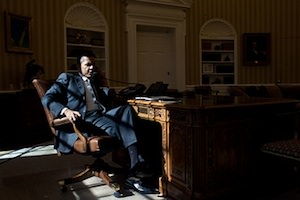
The entirely artificial crisis over the national debt ceiling threatens to tank the world economy as early as the middle of next month. According to the Obama administration, there is nothing the president can do on his own to raise the ceiling or maneuver around it. As much as some of us may disagree, Obama is correct.
Here’s why:
Since the enactment of the Second Liberty Bond Act in 1917, federal law has required Congress to set a ceiling on the amount of statutory debt the country can carry at a given time to finance its operations and pay the interest on bonds previously issued. Until the tea party takeover of the House of Representatives in the 2010 midterm elections, Congress had raised the ceiling 106 times, usually as a matter of routine, to prevent the country from falling into default. But no more. This time, even more vehemently than in 2011, Republican hard-liners in both the House and Senate have vowed not to lift the ceiling without unprecedented cuts to the social safety net.
So unless Obama caves to Republican demands — always a possibility — what are his best go-it-alone options?
To date, three principal strategies have been floated: (1) relying on the public debt clause of the 14th Amendment; (2) invoking an obscure “necessities of state” doctrine; and (3) minting a trillion dollar platinum coin. Each is a clever concept worthy of an “A” in the toughest law school. None, however, stands a chance of succeeding outside the halls of academia, the op-ed pages of leading newspapers or the echo chamber of the Internet.
The 14th Amendment’s Public Debt Clause
The public debt clause (Section 4) of the 14th Amendment states that “the validity of the public debt of the United States, authorized by law … shall not be questioned.”
Debt clause proponents (including former President Bill Clinton, congressional leaders Harry Reid and Nancy Pelosi, Nation magazine editor Katrina vanden Heuvel and constitutional scholars Garrett Epps of Baltimore University and Yale’s Jack Balkin) contend that if Congress declines to raise the debt ceiling, the clause authorizes the president to ignore the ceiling and order the Treasury to issue additional debt to pay both its bondholders and fund existing programs.
Drafted in the aftermath of the Civil War to ensure that a future Congress dominated by Southern states would not repudiate the North’s wartime arrears, the debt clause has been examined only once by the Supreme Court, in the so-called gold clause cases of 1935, which involved a joint congressional resolution that altered the repayment terms of gold bonds. Although the court read the debt clause broadly and invalidated the resolution, the decision it issued by no means established a precedent for addressing the current crisis.
As Harvard Law professor Laurence Tribe (perhaps the country’s foremost liberal legal don) noted in a 2011 New York Times op-ed, the debt ceiling statute in force today is clearly constitutional. And as Erwin Chemerinsky, another highly regarded liberal authority from UC Irvine, added in a 2011 Los Angeles Times op-ed, the Constitution (Article 1, Section 8) gives Congress the sole power to “borrow money on the credit of the United States.” Nothing in Section 4 of the 14th Amendment assigns that power to the president.
This month, a group of 21 congressional Democrats signed a letter urging Obama to embrace the debt clause solution. Thus far, the administration has demurred, announcing both during the 2011 standoff and late last year that it sees no escape hatch in the 14th Amendment.
Necessities of State
Acknowledging the technical shortcomings of the 14th Amendment strategy, yet another pair of law professors — Eric Posner of the University of Chicago and Harvard’s Adrian Vermeule — have suggested in another New York Times op-ed that Obama follow after Abraham Lincoln and simply authorize the Treasury to issue bonds above the debt ceiling as a necessity of state.
“When … Lincoln suspended habeas corpus during the Civil War,” the professors reasoned, “he said it was necessary to violate one law, lest all the laws fall into ruin. So too here: the president may need to violate the debt ceiling to prevent a catastrophe” that would throw the “country back into recession.” Obama’s authority to act would derive not from any specific constitutional provision but “from his paramount duty to ward off serious threats to the constitutional and economic system.”
In Steven Spielberg’s hit biopic “Lincoln,” the president (played by Daniel Day-Lewis) confesses that he relied on the same necessities of state notion cited by Posner and Vermeule in drafting the Emancipation Proclamation. Fans of the movie will also recall, however, that the screen version of the 16th president struggled mightily for ratification of a specific constitutional provision — the 13th Amendment — to render the abolition of slavery permanent and lawful. What was true in the movie unfortunately is true in real life: Without specific authority allowing the president to override the debt ceiling, there likely is none. The Platinum Coin
First proposed by a Georgia attorney named Carlos Mucha, who blogs for various Internet sites under the nom de plume “beowulf,” what may be the most ingenious strategy of all calls for the president to order the Treasury Department to mint one or two trillion-dollar platinum coins to be deposited with the Federal Reserve. The Fed in turn would credit the face value of the coin to the government’s general account, which the administration thereafter could draw on to pay its bills without issuing new bonds.
At first glance, the plan sounds plausible, and unlike the 14th Amendment and Necessity of State approaches, the minting of platinum coins is specifically authorized by statute (Section 5112 of Title 31 of the United States Code). Backers of the idea include no less than Nobel Prize-winning economist Paul Krugman and Washington Post/MSNBC pundit Ezra Klein, who concede the wacky nature of the proposal but have promoted it nonetheless as an alternative to the right’s debt-ceiling brinksmanship. The idea also has been endorsed by Philip Diehl, who served during the Clinton administration as the 35th director of the United States Mint.
Others have denounced the plan. CNBC.com senior editor John Carney has argued that the coin strategy is at root a form of borrowing that fails to overcome the objection that only Congress can increase the debt limit on the government’s credit card. Former Mint Director Edmund Moy, who worked under both George W. Bush and Obama, has termed the idea “a desperate gimmick of questionable legality.”
The idea has also been lampooned by New York magazine senior editor Dan Amira, who in a Daily Intelligencer post this month, pointed out that the platinum coin idea was foreshadowed in a 1998 episode of “The Simpsons” called “The Trouble with Trillions.” In the segment, Homer is pressured into working undercover for the IRS, assigned to track down a trillion dollar bill stolen by his boss, nuclear power mogul and all-around bad guy Montgomery Burns. But after an arrest is made, Homer takes pity on Burns and decides to team up with him and flee to Cuba, where the caper soon falls apart.
Whether or not Obama watches “The Simpsons” is unclear, but late last week the administration announced that it wasn’t buying the platinum option either. Short of a sudden change in direction then, there will be no avoiding a bone-bruising political confrontation with Republicans over the debt ceiling and the nation’s economic future. Like it or not, that confrontation is upon us.
Obama, for his part, has declared he won’t back down from the fight. The role of the progressive left is to insist he keeps that promise.
Your support matters…Independent journalism is under threat and overshadowed by heavily funded mainstream media.
You can help level the playing field. Become a member.
Your tax-deductible contribution keeps us digging beneath the headlines to give you thought-provoking, investigative reporting and analysis that unearths what's really happening- without compromise.
Give today to support our courageous, independent journalists.
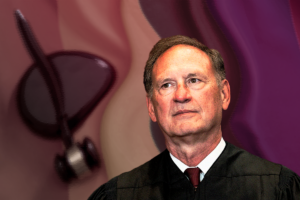
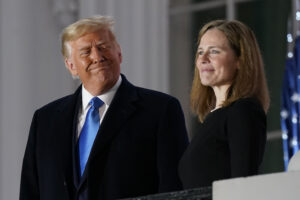
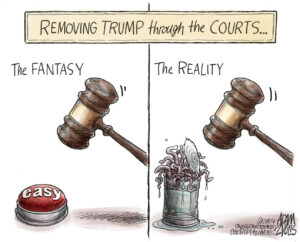

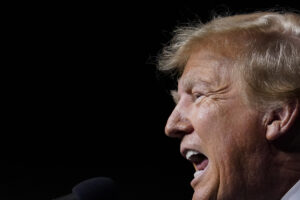

You need to be a supporter to comment.
There are currently no responses to this article.
Be the first to respond.